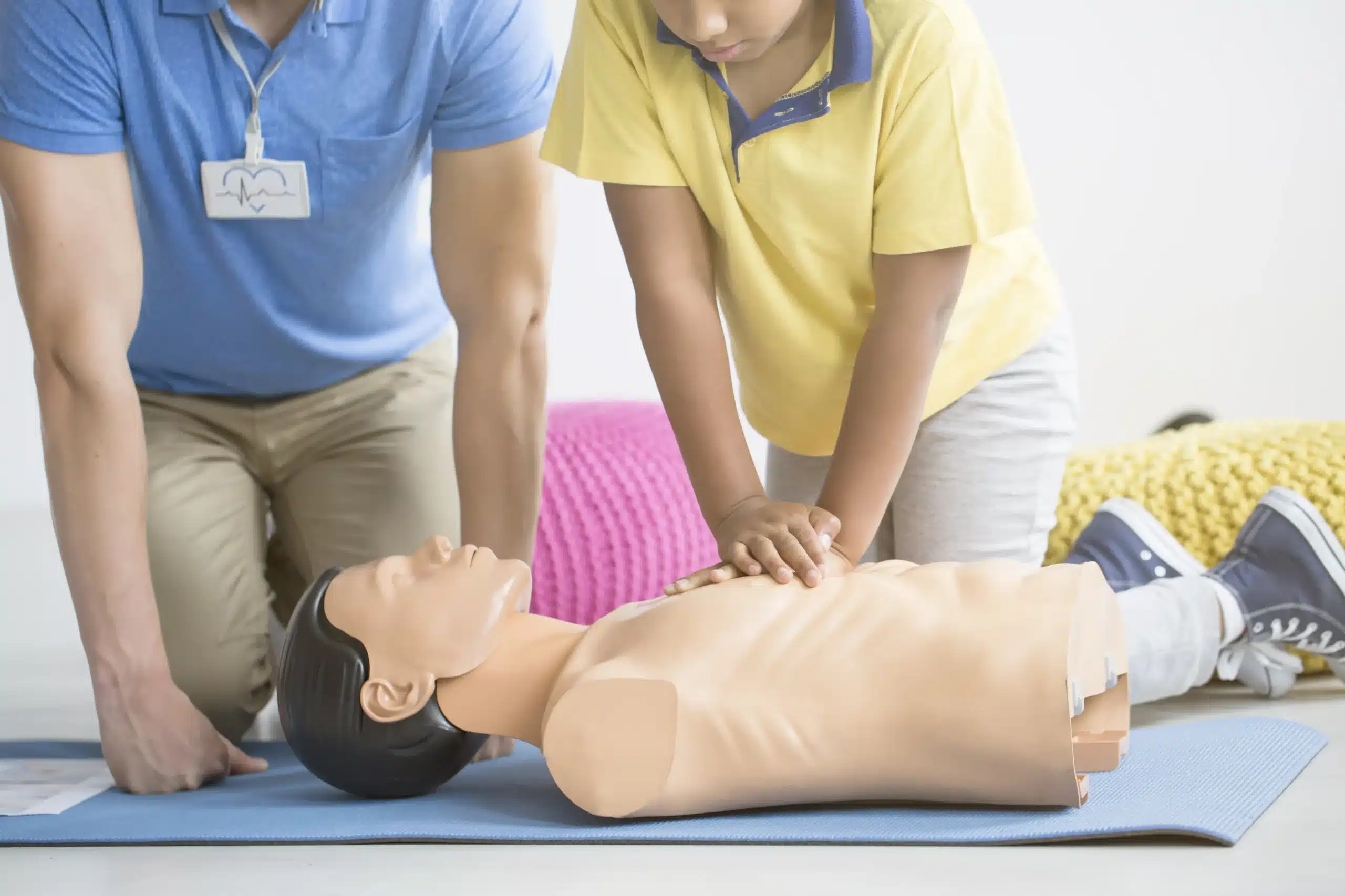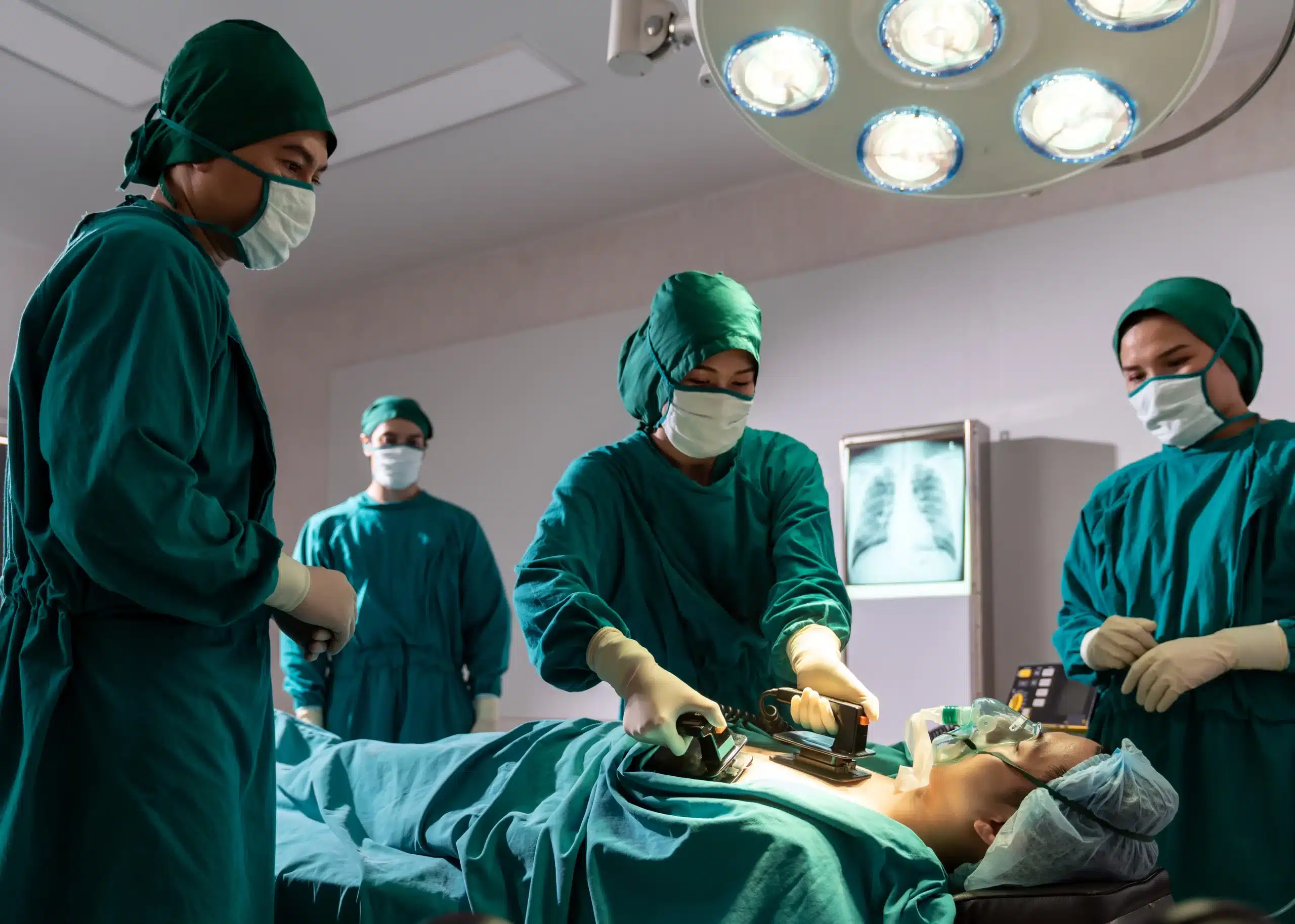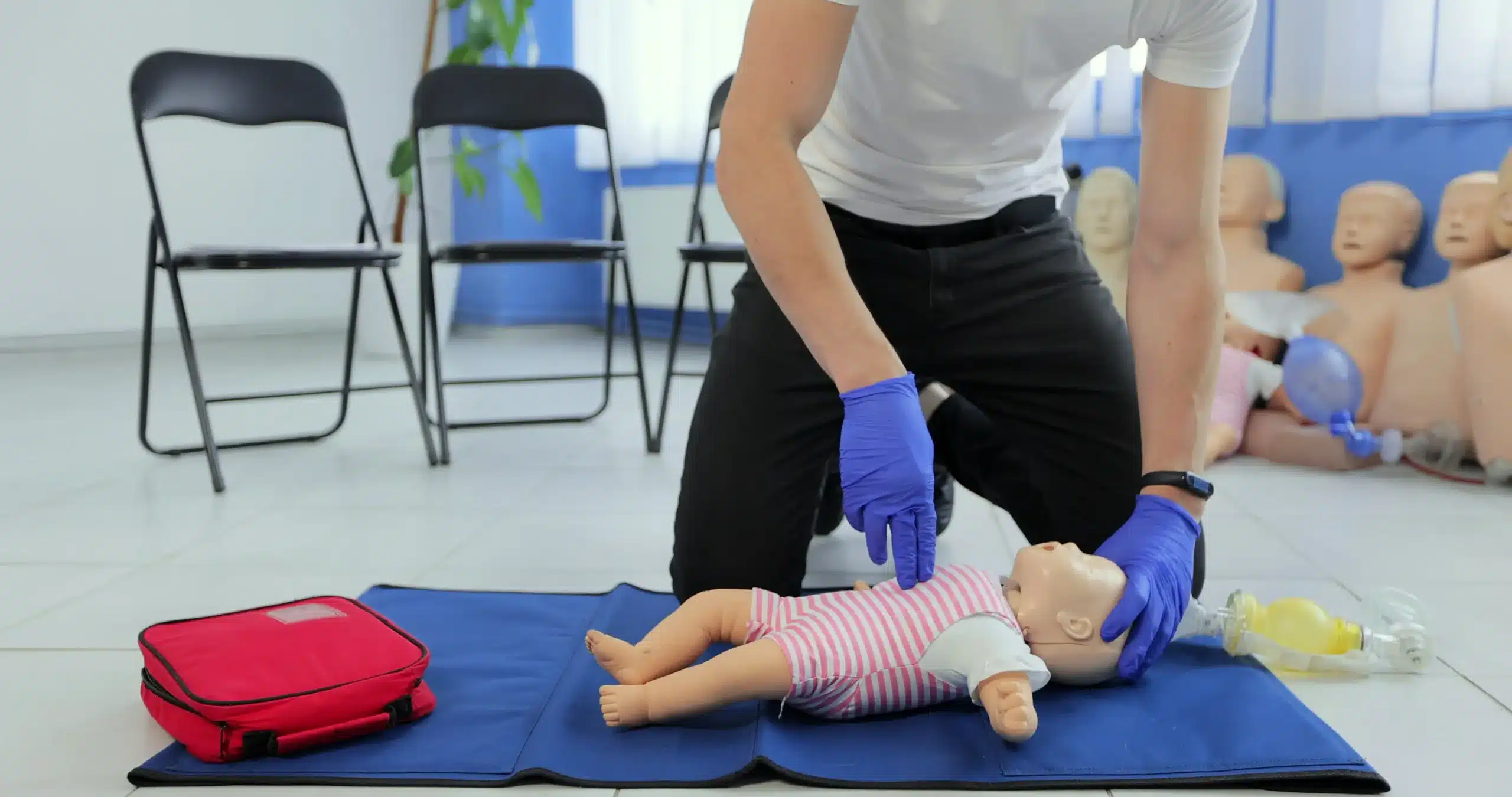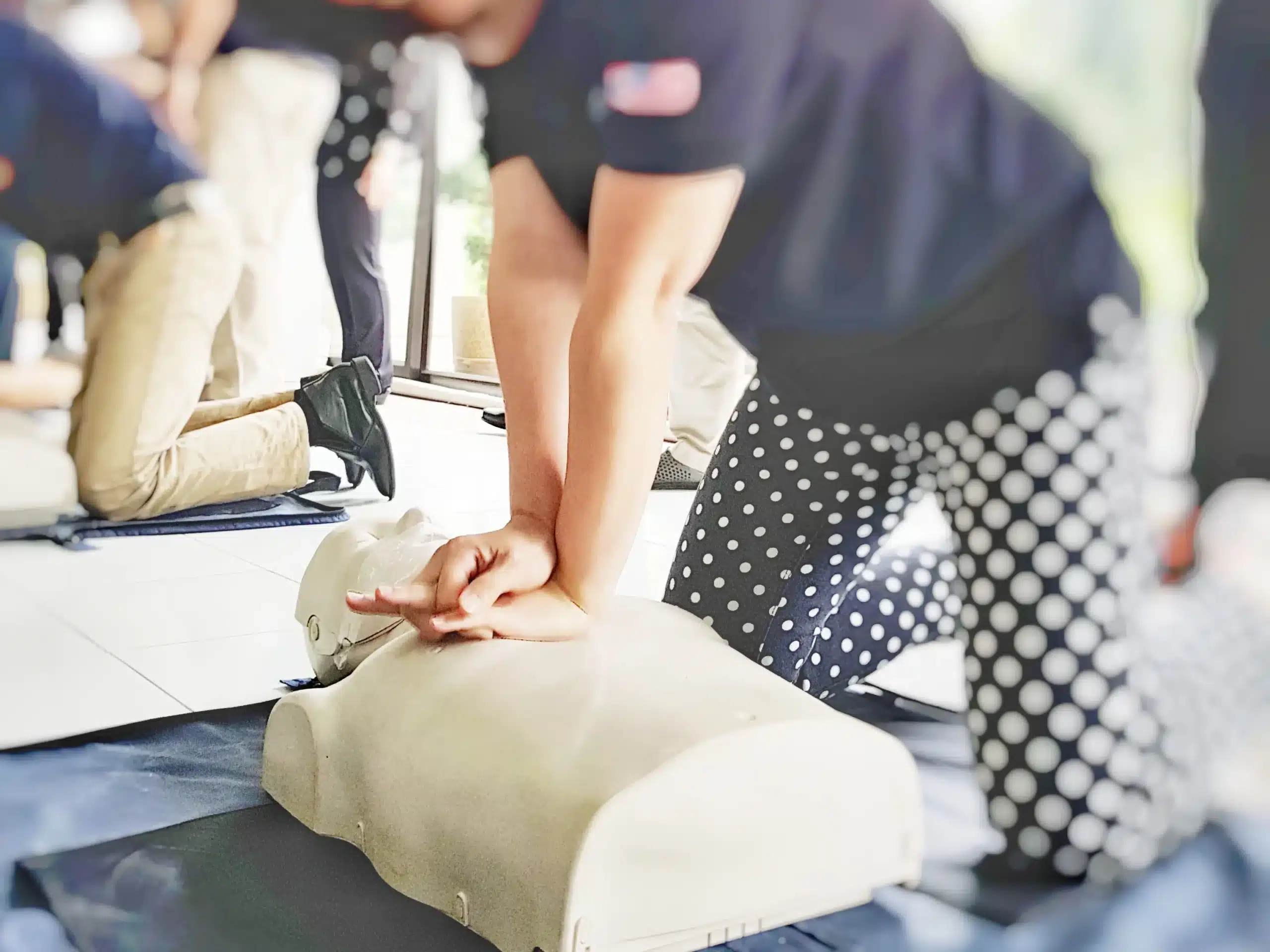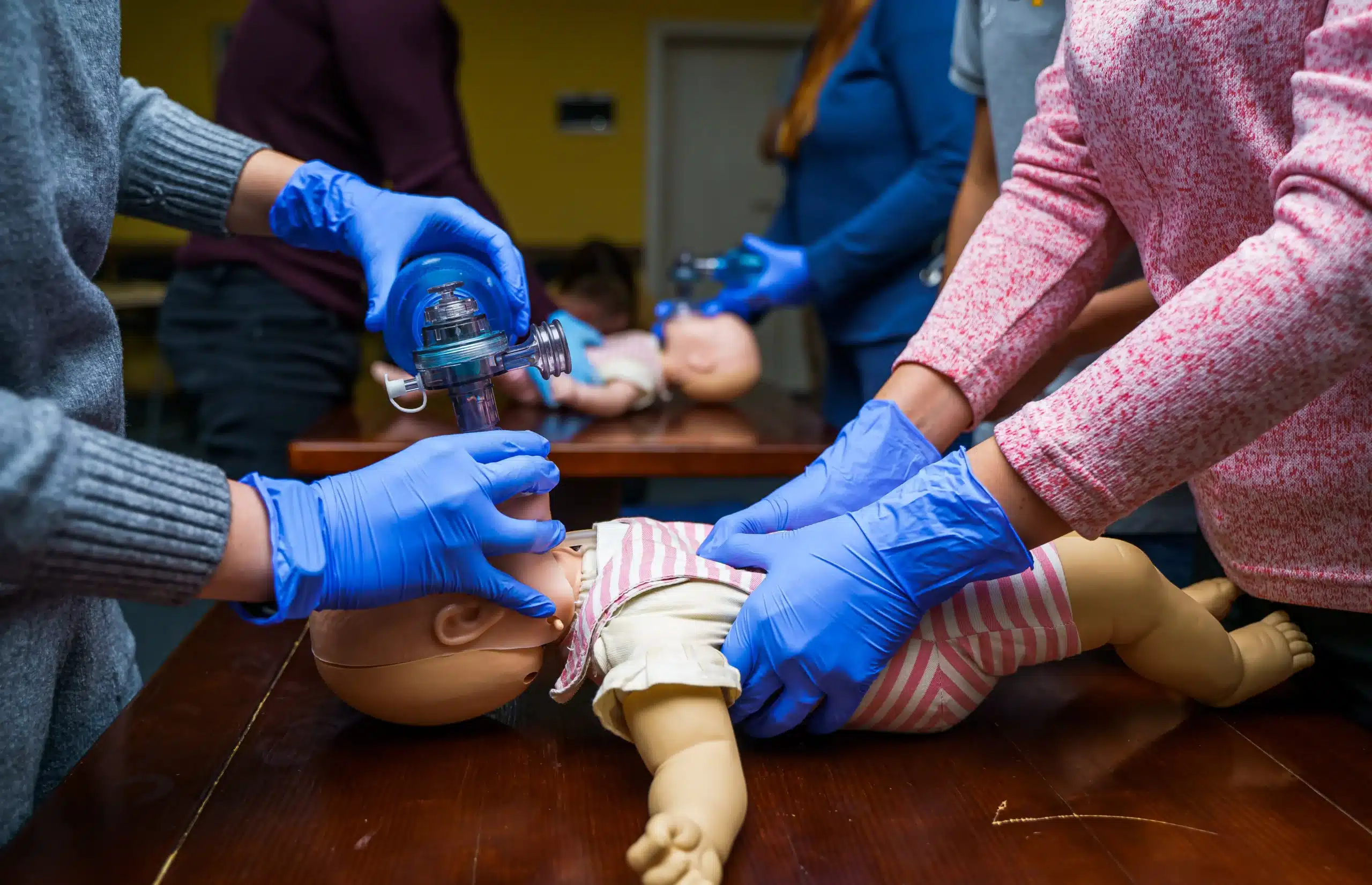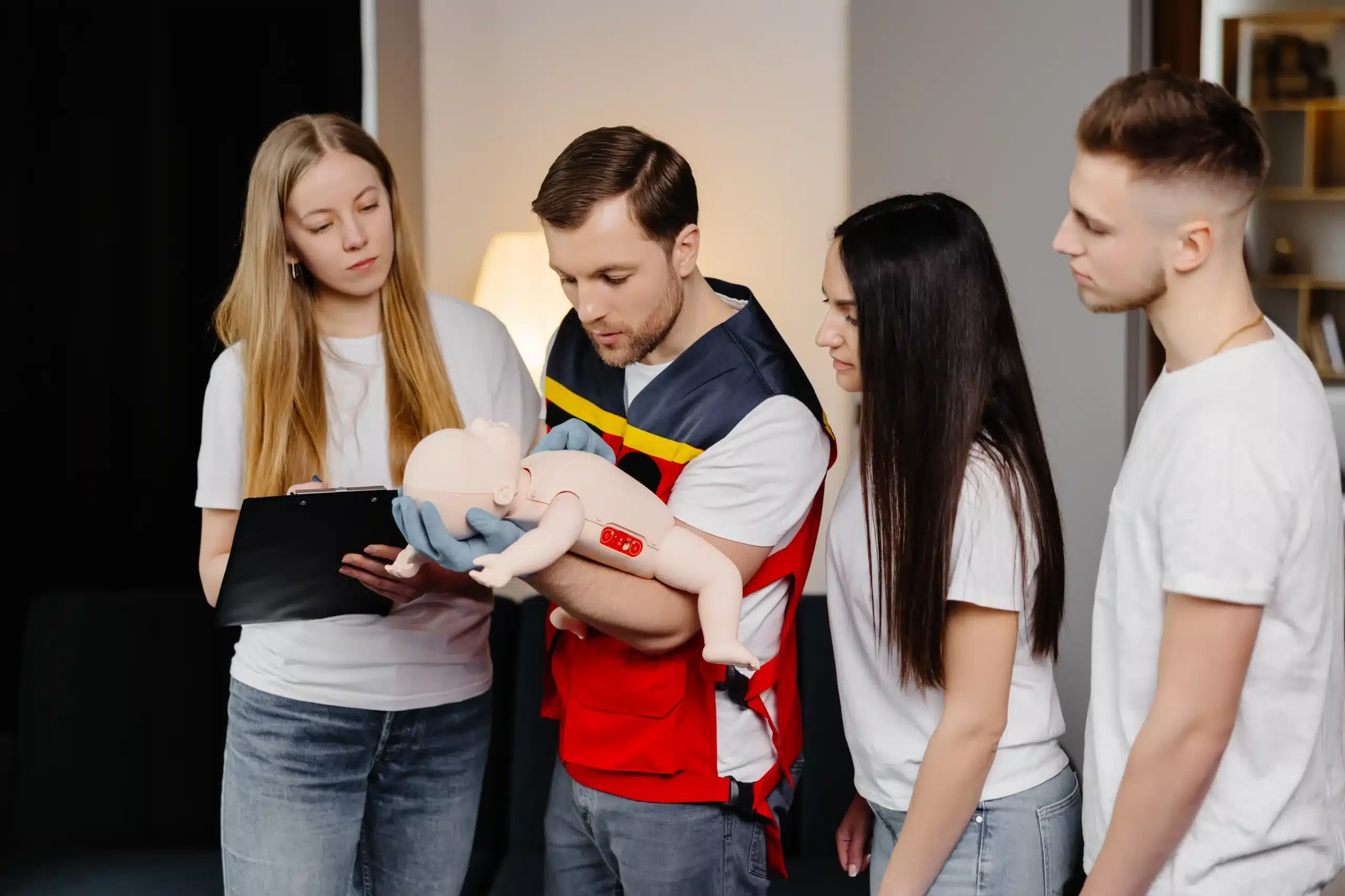Juggling the demands of a healthcare career in Hayward often leaves little room for lengthy training sessions. That’s where RQI ACLS classes in Hayward come in. This modern approach to ACLS certification offers a flexible, blended learning experience that fits your busy schedule. RQI ACLS combines online modules with short, hands-on skills sessions, ensuring you maintain peak performance in critical situations. This article will guide you through the key features of RQI ACLS, its advantages over traditional training, and how to get started with RQI ACLS classes in Hayward. We’ll also address common misconceptions and explore the long-term value of this innovative certification.
Key Takeaways
- RQI ACLS fits your schedule: The blended learning format combines online learning with short, frequent in-person skills sessions.
- Stay sharp with continuous feedback: Regular practice and immediate feedback help you maintain proficiency and build lasting skills.
- Advance your career with RQI ACLS: This certification demonstrates your commitment to providing high-quality patient care and can create new opportunities.
What is RQI ACLS?
RQI (Resuscitation Quality Improvement) is a program created by the American Heart Association. It offers healthcare professionals a modern and effective path to ACLS certification. This program is especially valuable in Hayward, streamlining training to fit the busy schedules of medical personnel. It helps healthcare providers maintain their skills and improve patient outcomes. RQI represents a shift in how healthcare professionals learn and maintain these critical skills.
How ACLS Training Has Evolved
RQI has transformed traditional CPR training with a blended learning format, combining online learning with hands-on practice. This method allows for shorter, more frequent training sessions. This accommodates busy schedules and improves long-term skill retention, crucial for effective patient care. The RQI approach ensures that healthcare providers can confidently respond to emergencies. It’s a more flexible and practical way to stay up-to-date with the latest resuscitation techniques.
Key RQI ACLS Features
The RQI program focuses on continuous skills assessment and quality improvement. It uses various learning tools centered around low-dose, high-frequency training and performance feedback. The program includes three key parts: cognitive learning, hands-on skills practice, and simulated patient cases. This creates a well-rounded learning experience, preparing healthcare professionals for diverse real-world scenarios. You can learn more about the RQI program directly from the American Heart Association. This comprehensive approach ensures competency and confidence in critical life-saving procedures.
RQI ACLS vs. Traditional ACLS: What’s the Difference?
If you’re a healthcare provider, you know maintaining your Advanced Cardiovascular Life Support (ACLS) skills is crucial. But traditional ACLS training often involves lengthy classes and infrequent renewals. RQI ACLS offers a fresh approach. Let’s explore the key differences.
Blended Learning
RQI ACLS uses a blended learning model. This means you’ll complete online modules at your own pace, followed by short, hands-on skills sessions. This flexible approach fits easily into a busy schedule, unlike traditional day-long in-person ACLS courses that can be tough to coordinate. You learn the material whenever and wherever it suits you.
Continuous Skill Improvement
RQI ACLS emphasizes continuous improvement, unlike traditional ACLS with its single, high-stakes test. You’ll participate in frequent, low-stakes practice and receive immediate feedback, building muscle memory and maintaining proficiency over time. The American Heart Association designed RQI to improve CPR competency through these frequent skill renewals, ultimately enhancing your job performance. It’s about building lasting skills, not just passing a test.
Real-Time Feedback
One of RQI ACLS’s most significant advantages is the real-time feedback during skills practice. This immediate feedback helps you identify areas for improvement and refine your technique—a personalized element often lacking in traditional ACLS courses. RQI keeps your CPR skills sharp with frequent, short practice sessions and immediate feedback, unlike traditional, infrequent CPR training. This focus on personalized feedback helps you become a more confident and competent provider.
How to Enroll in RQI ACLS Classes in Hayward
The American Heart Association RQI (Resuscitation Quality Improvement) program is the most popular, modern, and efficient way for medical and healthcare professionals in Hayward to get their official AHA BLS, ACLS, and PALS certification cards. This section breaks down everything you need to know about enrolling in RQI ACLS classes in Hayward.
Prerequisites and Eligibility
Before enrolling in an RQI ACLS course, you should have a current AHA BLS Provider or BLS Renewal certification. This foundational knowledge prepares you for the advanced concepts covered in ACLS. RQI ACLS is designed for healthcare providers who direct or participate in the management of cardiopulmonary arrest or other cardiovascular emergencies. This includes physicians, nurses, paramedics, respiratory therapists, and other allied health professionals.
Enrollment Steps
Enrolling in RQI ACLS classes in Hayward is straightforward. Students typically begin by completing the online portion of the course at their own pace. This cognitive component covers essential ACLS knowledge and theory. After finishing the online modules, students schedule a hands-on skills session at a Hayward CPR Classes training center. During this session, you’ll demonstrate your skills using a voice-assisted manikin. After successfully completing the skills check, you’ll receive your AHA ACLS certification card the same day.
Materials and Preparation
The online portion of the RQI ACLS course provides all the necessary learning materials. You’ll have access to digital resources, interactive modules, and practice scenarios. Hayward CPR Classes provides all the necessary equipment, including the voice-assisted manikin, for the in-person skills session. To prepare, ensure you have a reliable internet connection to access the online materials and review your BLS skills before your skills check. The RQI program emphasizes continuous quality improvement, so maintaining your skills through regular practice is highly encouraged.
RQI ACLS Class Costs & Value
When considering RQI ACLS training, understanding the costs, benefits, and available discounts is essential for making an informed decision. Let’s break down the pricing structure and explore the long-term value of this crucial certification.
Hayward Pricing
RQI ACLS course fees in Hayward, CA, vary depending on the training center and the specific course format. Comparing prices from different providers, like those listed on Bay Area CPR, is always a smart move. For our current pricing and any available discounts, contact us directly. We’re happy to answer your questions.
Long-Term Benefits and ROI
While there’s an upfront cost for RQI ACLS certification, the long-term benefits and return on investment are significant. RQI’s emphasis on continuous skill improvement and real-time feedback results in better CPR performance and patient outcomes. This guide to RQI in Berkeley highlights the value of this data-driven approach. Being prepared to deliver the best possible care offers invaluable peace of mind and can truly make a difference.
Group Discounts and Special Offers
Training a team? Many providers offer discounts for group training, making it a cost-effective way to keep everyone’s ACLS certification current. Learn more about our group discounts and the possibility of on-site training. We strive to make high-quality training accessible and affordable.
Flexible RQI ACLS Learning Options
One of the biggest advantages of RQI ACLS is its flexible learning format. It combines online learning with short, frequent in-person skills sessions, making it much easier to fit into a busy schedule. This blended learning approach accommodates various lifestyles and promotes better long-term skill retention. Let’s break down how this flexibility works:
Online & Self-Paced Learning
The RQI program offers a modern and efficient path to ACLS certification. A significant portion of the learning happens online and is self-paced, meaning you can study whenever and wherever it’s convenient. You control your learning journey, reviewing content as needed and progressing at your own speed. This online component focuses on enhancing the quality of CPR training through continuous skills assessment.
In-Person Skills Assessments
While online learning provides foundational knowledge, RQI ACLS also emphasizes hands-on practice. Short, frequent in-person skills sessions provide opportunities to apply what you’ve learned online. These sessions include immediate feedback from instructors, helping you refine your technique and build confidence. Unlike traditional, infrequent CPR training, the RQI method keeps your skills sharp through regular practice and reinforcement, similar to what San Jose CPR Certification highlights.
Flexible Scheduling
RQI’s blended learning format offers significant scheduling flexibility. The shorter, more frequent skills sessions make it easier to integrate the training into a busy schedule. You can choose session times that work for you, minimizing disruption to your work or personal commitments. This adaptable approach improves long-term skill retention by reinforcing knowledge and skills regularly, a point also discussed by Safety Training Seminars. This is a major advantage over traditional ACLS courses, which often require large blocks of time and may not offer the same level of scheduling flexibility.
The RQI ACLS Curriculum: What to Expect
The RQI ACLS curriculum blends online learning with hands-on skills sessions and simulation training. This approach allows healthcare professionals to learn at their own pace and refresh their skills regularly. Here’s what you can expect:
Core Components and Skills
The American Heart Association RQI program offers a modern and efficient way to get ACLS certified. It’s built around three core components: cognitive (knowledge-based learning), psychomotor skills (hands-on practice), and simulated patient cases. You’ll cover essential algorithms, pharmacology, and team dynamics, focusing on managing cardiac arrest and other cardiovascular emergencies. The curriculum emphasizes a deep understanding of the science behind ACLS.
Hands-On Practice
RQI ACLS isn’t just about online learning. The program includes hands-on skills sessions in Hayward, where you’ll practice essential techniques like chest compressions, airway management, and intravenous access. These sessions are led by certified instructors who provide personalized feedback and ensure you’re competent in performing these life-saving skills. You’ll also work through simulated patient cases, applying your knowledge and skills in realistic scenarios. This practical experience builds confidence and prepares you for real-world emergencies. Many ACLS providers offer same-day certification cards after successful completion.
Technology Integration
RQI uses technology to deliver a more data-driven and skills-focused approach to ACLS training. The online learning modules are interactive, using a variety of learning tools to reinforce key concepts. The program uses performance feedback to track your progress and identify areas where you might need extra practice. This personalized approach ensures you’re always prepared to deliver high-quality CPR. The RQI program offers a blended learning format with shorter, more frequent sessions to accommodate busy schedules and improve long-term skill retention.
Maintaining Your RQI ACLS Certification
Once you’ve earned your RQI ACLS certification, staying current is key. This section covers how to maintain your credentials and keep your skills sharp.
Renewal Process
RQI ACLS certification renewal is an ongoing process. Unlike traditional ACLS, which requires a comprehensive refresher course every two years, RQI ACLS uses a “low-dose, high-frequency” model. This means you’ll regularly complete short assessments and learning modules to demonstrate continued competency. This approach reinforces your skills and knowledge over time, leading to better retention and improved patient outcomes. For more detailed information, check out this helpful guide on maintaining RQI certification.
Continuing Education
RQI emphasizes continuing education through its blended learning format, combining online modules with hands-on skills sessions. The online component lets you learn at your own pace and refresh your knowledge frequently, while the in-person skills sessions provide opportunities for practice and feedback. This blended learning model makes it easier to fit training into your busy schedule, as explained in this guide to RQI certification. Regular practice and immediate feedback help build confidence and proficiency in performing ACLS, ultimately leading to better patient care, as discussed in this RQI resource.
Advance Your Career with RQI ACLS Certification
Industries that Value ACLS
ACLS certification is a valuable asset across many healthcare settings. Hospitals, emergency medical services, and critical care units seek out professionals with this training. But ACLS isn’t limited to those specialties. It’s relevant for a wide range of healthcare providers who might encounter cardiac emergencies, from those working in surgery and anesthesiology to dental practices. Holding an ACLS certification, recognizing its importance in patient safety and positive outcomes.
How RQI ACLS Improves Credentials
RQI ACLS strengthens your credentials with a more engaging and effective approach to learning. The RQI program goes beyond certification, focusing on improving CPR quality through continuous skills assessment. This leads to better skill retention and increased confidence in real-life emergencies. The flexible, blended learning format accommodates busy schedules with shorter, more frequent sessions. RQI uses various learning tools, emphasizing skills mastery through low-dose, high-frequency training and performance feedback. This blend of cognitive learning, psychomotor skills development, and simulated patient cases creates a comprehensive learning experience that improves performance in critical situations. Earning your RQI ACLS certification demonstrates a commitment to the latest resuscitation science and best practices, making you a valuable asset to any healthcare team. It can also give you an edge when applying for jobs or promotions.
RQI ACLS Providers in Hayward
Finding the right RQI ACLS training provider is an important step. Here are a few options in and around Hayward:
Hayward CPR Classes
Hayward CPR Classes offers American Heart Association RQI certification classes right here in Hayward. They focus on providing quick, effective training in ACLS, BLS, and PALS, ensuring healthcare providers are prepared for emergencies. As a woman-owned business, they offer daily classes and competitive pricing. Visit their website for the latest schedule and to contact them about registering.
Bay Area CPR / Safety Training Seminars
Safety Training Seminars (also known as Bay Area CPR) offers AHA-certified BLS, ACLS, PALS, and CPR classes in Hayward. Their courses are designed for healthcare professionals and follow the latest AHA guidelines. They are a good option if you’re looking for comprehensive training options. They also serve nearby San Leandro and Union City.
San Leandro CPR Classes
While based in San Leandro, San Leandro CPR Classes offers a full range of AHA certifications, including ACLS. They offer daily classes and on-site training for groups, making them a convenient choice for those in and around Hayward.
ProCPR
ProCPR also offers CPR and First Aid training in the Bay Area. Contact them directly to see if they offer RQI ACLS training and if they have any classes scheduled in or near Hayward. It’s always a good idea to compare several providers to find the best fit for your schedule and learning style.
Common RQI ACLS Misconceptions
It’s normal to have questions about a new training program. Let’s clear up some common misconceptions about RQI ACLS.
Addressing Validity Concerns
One frequent concern is whether RQI ACLS certification holds the same weight as traditional ACLS training. The short answer? Yes. RQI ACLS follows the same evidence-based guidelines set by the American Heart Association and results in a certification that is equally recognized and respected. ACLS training isn’t limited to specific specialties or settings. It’s relevant for any healthcare provider who might encounter a cardiac emergency. The RQI program focuses on enhancing the quality of CPR training through continuous skills assessment, leading to better patient outcomes. If you’re interested in learning more about our BLS certification, check out our resources.
Debunking Myths About Time Commitment
Many healthcare professionals worry about fitting additional training into their already packed schedules. RQI’s flexible format addresses this concern head-on. The blended learning approach, featuring shorter, more frequent sessions, accommodates busy schedules and improves long-term skill retention. Think of it this way: instead of cramming for a big test every two years, you’re consistently refreshing your skills, making them second nature. This approach, with its frequent practice sessions and immediate feedback, helps you maintain proficiency and build confidence, unlike traditional, infrequent CPR training. You’ll be surprised how easily RQI fits into your routine. Contact us to learn more about our flexible scheduling options and group discounts. We also offer RQI classes to fit your specific needs.
Related Articles
- ACLS HeartCode San Leandro: A Certification Guide
- ACLS Renewal Near Me: Your Complete Guide – Hayward CPR Classes
- AHA ACLS Classes in Hayward, CA – Hayward CPR Classes
- BLS ACLS PALS Training in Hayward: A Complete Guide – Hayward CPR Classes
- RQI Classes in Hayward, CA – Hayward CPR Classes
Frequently Asked Questions
Is RQI ACLS as good as traditional ACLS? Yes, RQI ACLS certification is equivalent to traditional ACLS and is recognized by the American Heart Association. It follows the same guidelines and standards, but with a more modern and flexible approach. The focus on continuous quality improvement through regular assessments ensures you maintain top-notch skills.
How much does RQI ACLS cost in Hayward? The cost varies depending on the training center and any applicable discounts. Contact Hayward CPR Classes directly for the most up-to-date pricing information. We often have special offers and group discounts available. It’s always a good idea to compare prices from different providers to find the best value.
What if I don’t have a lot of time for training? RQI ACLS is designed for busy professionals. The blended learning format combines online modules with short, frequent in-person skills sessions. You can complete the online portion at your own pace, and the skills sessions are designed to fit into your schedule.
What are the prerequisites for RQI ACLS? You’ll need a current AHA BLS Provider or BLS Renewal certification before enrolling in RQI ACLS. This ensures you have the foundational knowledge necessary for the advanced concepts covered in the ACLS course.
How do I renew my RQI ACLS certification? RQI ACLS certification renewal is an ongoing process. Instead of a single large refresher course every two years, you’ll complete short, regular assessments to demonstrate continued competency. This approach helps you maintain your skills and knowledge over time.
